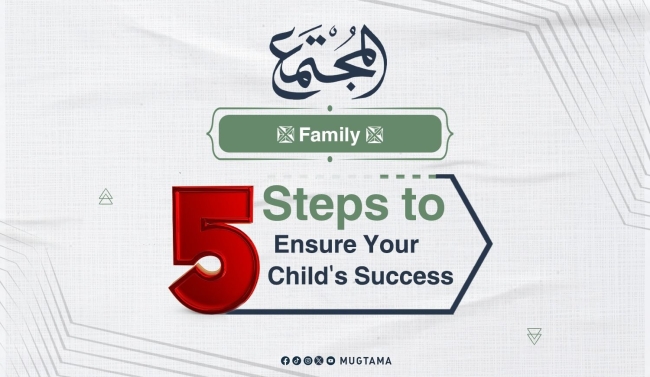Since a child enters school, parents often express their dreams for the future, saying things like “We want you to be a doctor,” “We want you to be an engineer,” “We want you to be an officer,” “We want you to be a scientist,” “We want you to be a famous athlete,” and so on.
Education experts say it is wrong to impose a career path on your child without understanding their abilities or knowing their interests, which may differ from your own. Perhaps they want something else; perhaps they aspire to be different from you.
Recent studies indicate that future jobs are changing, with new professions emerging in the coming years while others disappear or decline in importance in the job market. Therefore, preparing your child according to scientific standards is necessary, making them qualified for multiple jobs and skilled in various areas and languages.
Education technology expert Cathy Davidson, as quoted by “Coda Kid,” states that 65% of children will face unfamiliar future jobs due to technological development, artificial intelligence, the robotics revolution, modern communication and connectivity applications, alternative energy, and online shopping roles.
There is no doubt that the new generation of children can absorb many of these developments. You might find a child proficient in a game whose rules are unknown to the parents. Often, children are more skilled in social media applications than their mothers, for instance. Today’s children perform tasks on computers while their fathers might struggle to handle many basics on their personal computers.
Experts recommend, alongside the launch of the educational process during the new school year, applying five general strategies to prepare children for future jobs:
- Encourage Learning: Foster a passion for knowledge, and develop a love for learning through reading, writing, analysis, exploration, and leadership. Enhance memory, intelligence, and special abilities—not just by adhering to school curricula but by nurturing your child's talents, improving their skills, raising their academic and mental levels, and providing necessary information and experiences.
- Introduce Technology Early: Encourage children to enter the world of technology and programming, develop their innovation and invention skills, enhance logical thinking, and boost their creative problem-solving and crisis management abilities.
- Build Self-Confidence: Avoid scolding or imposing commands on your child. Give them the chance to experiment, make mistakes, and correct them, fostering motivation toward positivity, success, and the desire to overcome challenges. Excessive fear of a child's failure is misguided; it is natural to make mistakes, learn, and succeed.
Education experts advise teaching children how to handle difficulties, recover quickly from failure or setbacks, and give them another chance to learn and improve results.
- Promote Teamwork: To complete the future preparation strategy, it is essential to develop a spirit of cooperation and teamwork in children. Encourage participation in group activities—whether sports, cultural, or religious—and teach them to accept criticism and others' opinions. This enriches their ability to learn from others and benefit from past experiences.
- Master Leadership Skills: Leadership is a necessity for future jobs and is crucial in a child's performance and mental and intellectual development, thus shaping their ambitions and dreams. According to specialized researchers, it is also a strong indicator of self-confidence and a child's ability to achieve multiple accomplishments.
These five foundations represent a scientific approach that goes beyond school curricula, meaning that this strategy should accompany the child as an overall educational approach. Many families focus solely on monthly and yearly exams, neglecting the importance of knowledge itself and making it a continuous process. This approach achieves the best investment in human resources, especially when that resource is your child.
-------------------------------------------------------------


